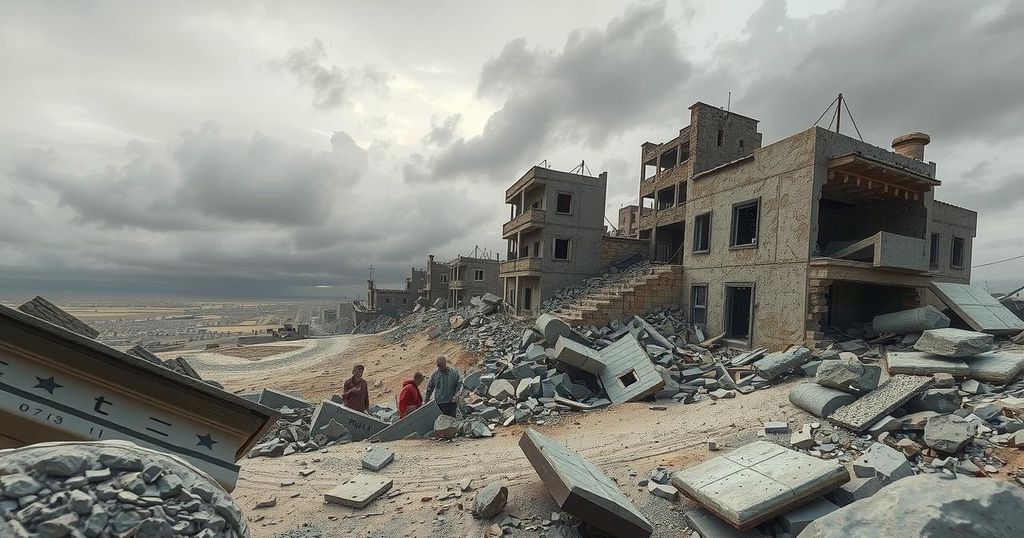Iran’s Quds Force Commander Visits Baghdad Amid Regional Tensions
Esmail Qaani, Iran’s Quds Force Commander, visited Baghdad for discussions with Iraqi leaders about regional neutrality and security control. He warned against Israeli strikes and emphasized Iraq’s need to avoid alignment with any party. U.S. Defense Secretary Pete Hegseth’s recent warnings to Iraq highlighted pressures to disarm armed factions, coinciding with escalating regional military actions.
Esmail Qaani, the Commander of Iran’s Quds Force, made an unannounced visit to Baghdad for significant discussions with Iraqi political and military leaders, as reported by Shafaq News. His meetings included engagements with leaders of the Coordination Framework, commanders of armed factions, the Popular Mobilization Forces (PMF), and Iran’s ambassador to Iraq. The discussions primarily focused on Iraq’s neutrality in regional disputes, particularly concerning Syria, and the necessity to keep security under the state’s command.
Additionally, the talks addressed the implications of recent U.S. airstrikes on Yemen’s Houthis (Ansarallah) and the broader regional dynamics. A senior source indicated that Qaani communicated Tehran’s position, urging Iraq to sustain its neutral stance and refrain from aligning with any particular side. He cautioned, however, that “Iran would not remain silent if Iraq were targeted by Israeli strikes,” while pledging support for any potential response from the Iraqi government or allied factions.
This visit occurs amidst increasing pressure from the United States on Baghdad. Reports indicated that U.S. Defense Secretary Pete Hegseth recently issued a strong warning during a call with Iraqi Prime Minister Mohammed Shia al-Sudani. He cautioned that any Iraqi armed factions’ interventions against U.S. operations in Yemen could provoke an American military response within Iraq.
Hegseth urged Prime Minister al-Sudani to expedite the disarmament and dismantling of these factions, a crucial objective of President Trump’s administration. In response, al-Sudani seemingly confirmed that his government is currently engaged in discussions with these armed groups to reach a resolution. These warnings coincidental with Israel’s resumed airstrikes on Gaza, following a fragile ceasefire, and U.S. strikes on Houthi positions in Yemen amidst the emergence of new Iraqi armed factions.
These factions have declared a resolve to enact “jihad” to defend Iraq and Yemen against U.S. military actions, reflecting the increasingly complex regional tensions and evolving alliances.
In conclusion, the unannounced visit of Qaani underscores the delicate balance Iraq must maintain amidst increasing external pressures, particularly from the United States and regional actors. The emphasis on Iraq’s neutrality and control over its security apparatus is critical, especially as U.S. military actions prompt heightened responses from Iraqi factions. The evolving dynamics signal a challenging path ahead for Iraq as it navigates its sovereignty amidst external influences.
Original Source: shafaq.com




Post Comment